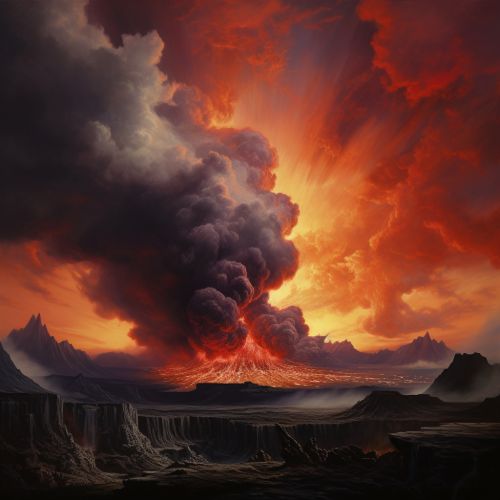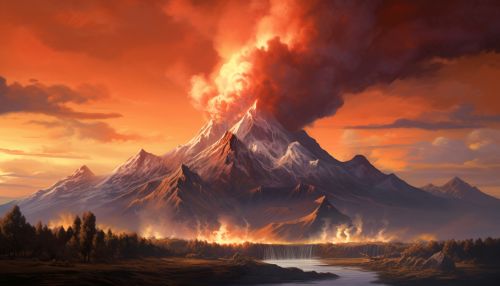Volcanology
Introduction
Volcanology, the scientific study of volcanoes and volcanic phenomena, is a multidisciplinary field that intersects with geology, geophysics, and geochemistry. The study of volcanoes and volcanic activity allows scientists to gain insights into the composition and dynamics of the Earth's interior.


History of Volcanology
The history of volcanology is as old as human civilization itself, with ancient cultures attributing volcanic events to various deities or supernatural entities. The term "volcanology" is derived from Vulcan, the ancient Roman god of fire. Modern volcanology, however, began in the late 18th century with the comprehensive studies of the eruptions of Mount Vesuvius and other volcanoes.
Volcanic Activity
Volcanic activity is primarily driven by the movement of tectonic plates, the large slabs of rock that make up the Earth's lithosphere. When these plates move, they can cause magma from the Earth's mantle to rise to the surface, resulting in a volcanic eruption.
Types of Volcanoes
There are several different types of volcanoes, each with their unique characteristics and eruption styles. These include stratovolcanoes, shield volcanoes, and cinder cones, among others.
Volcanic Hazards
Volcanic hazards are the potentially dangerous events that can occur before, during, and after a volcanic eruption. These include pyroclastic flows, volcanic ash, lahars, and volcanic gases, which can have significant impacts on human health and the environment.
Volcanic Monitoring and Prediction
Monitoring and predicting volcanic activity is a crucial aspect of volcanology. This involves the use of various techniques and technologies, such as seismology, ground deformation monitoring, gas emissions monitoring, and satellite imagery.
Volcanoes and Climate
Volcanoes can have a significant impact on the Earth's climate. Large volcanic eruptions can release vast amounts of volcanic gases into the atmosphere, which can lead to global cooling and other climatic changes.
Conclusion
Volcanology is a vital field of study that contributes significantly to our understanding of the Earth's internal processes and the potential hazards associated with volcanic activity. Through the ongoing study of volcanoes, scientists continue to gain valuable insights into the workings of our planet.
